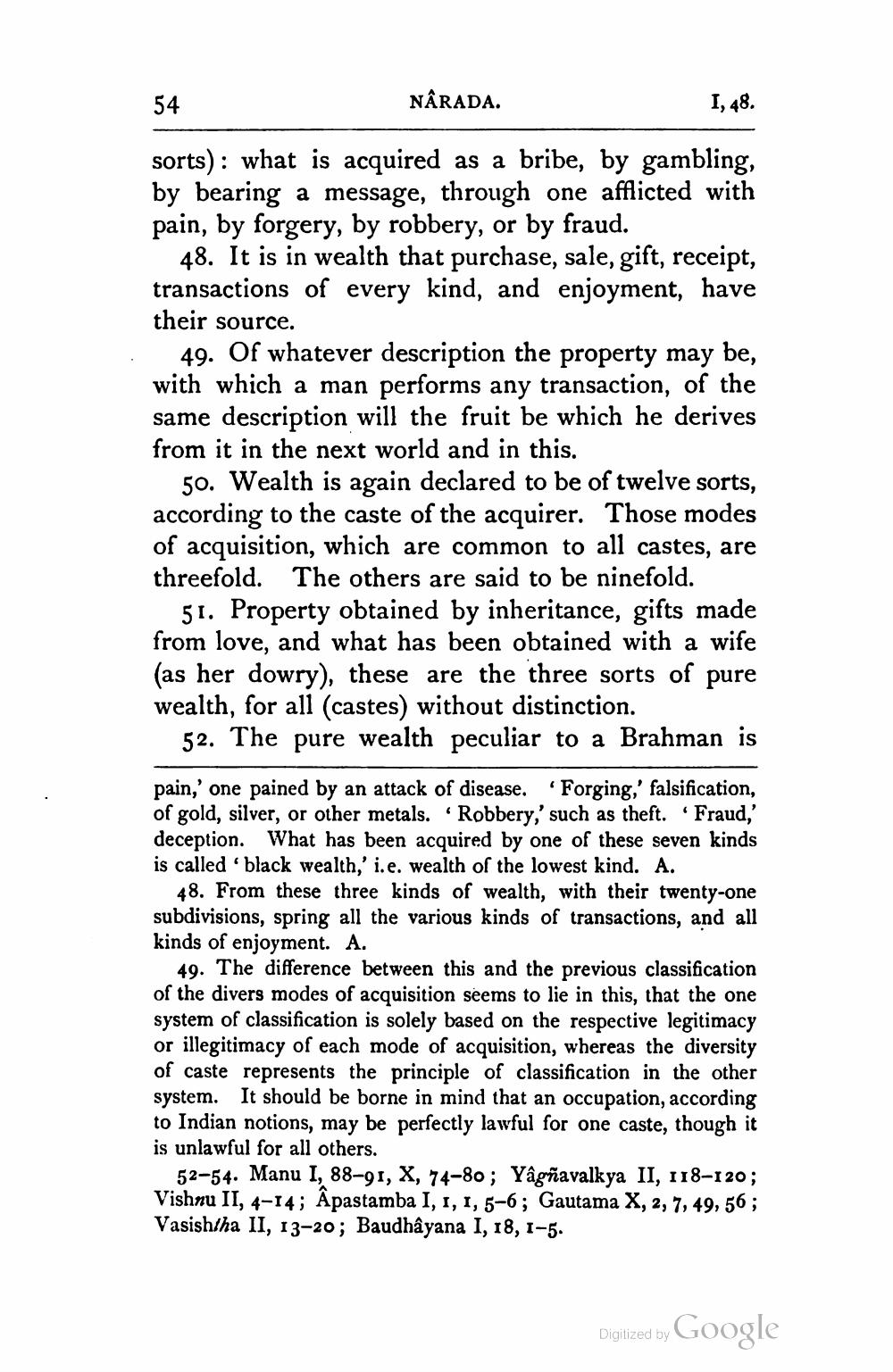________________
54
NÂRADA.
1,48.
sorts): what is acquired as a bribe, by gambling, by bearing a message, through one afflicted with pain, by forgery, by robbery, or by fraud.
48. It is in wealth that purchase, sale, gift, receipt, transactions of every kind, and enjoyment, have their source.
49. Of whatever description the property may be, with which a man performs any transaction, of the same description will the fruit be which he derives from it in the next world and in this.
50. Wealth is again declared to be of twelve sorts, according to the caste of the acquirer. Those modes of acquisition, which are common to all castes, are threefold. The others are said to be ninefold.
51. Property obtained by inheritance, gifts made from love, and what has been obtained with a wife (as her dowry), these are the three sorts of pure wealth, for all (castes) without distinction.
52. The pure wealth peculiar to a Brahman is
pain,' one pained by an attack of disease. Forging,' falsification, of gold, silver, or other metals. Robbery,' such as theft. Fraud,' deception. What has been acquired by one of these seven kinds is called 'black wealth,' i.e. wealth of the lowest kind. A.
48. From these three kinds of wealth, with their twenty-one subdivisions, spring all the various kinds of transactions, and all kinds of enjoyment. A.
49. The difference between this and the previous classification of the divers modes of acquisition seems to lie in this, that the one system of classification is solely based on the respective legitimacy or illegitimacy of each mode of acquisition, whereas the diversity of caste represents the principle of classification in the other system. It should be borne in mind that an occupation, according to Indian notions, may be perfectly lawful for one caste, though it is unlawful for all others.
52-54. Manu I, 88-91, X, 74-80; Yâgñavalkya II, 118-120; Vishnu II, 4-14 pastamba I, 1, 1, 5-6; Gautama X, 2, 7, 49, 56; Vasishtha II, 13-20; Baudhayana I, 18, 1-5.
Digitized by Google




